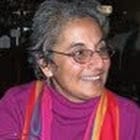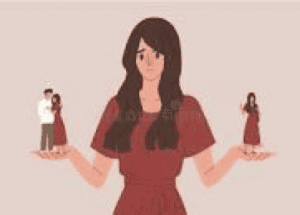by Asifa Kanji

Asifa Kanji
This is an excerpt from Asifa Kanji’s new book, Behind Many Masks, which will be published later this year.
I read the opinion piece by Christian Cooper, Why I have chosen not to aid the investigation of Amy Cooper. It changed my life.
Christian Cooper, an African American, is the Harvard-graduate-birdwatcher who was accused of assault in Central Park, when all he was trying to do was asking the dog walker to leash her dog in the bird sanctuary. He is emphatic that he does not want to participate in Amy Cooper’s (no relation) trial for filing a false police report. Mr. Cooper says that “focusing on charging her, lets white people off the hook from more pressing questions about the more toxic racial bias that she tapped into. . .They can scream for her head while leaving their own prejudices unexamined. They can push for her prosecution and pat themselves on the back for having done something about racism, when they have actually done nothing, and their own Amy Cooper remains only one purse-clutch away in the presence of a black man.”
My conscience prickled as I read Christian Cooper’s letter.
I remember so well when I told my mother that when I grow up I wanted to be white. I was seven. My face burned for hours from the smart smack I received for thinking such a vile thought. As an Indian child growing up in the British Territory of Tanganika, seeing whites act and be treated like royalty, I envied their privilege.
At my elite British boarding school, I tried hard to emulate the whites, their manners, their accents, their dress. I badly wanted to be one of them. I married a white man and moved to America, specifically to Berkeley. I was thrilled, and thrived in America’s egalitarian culture. The color of my skin was irrelevant until the day when. . .
. . . someone slammed their shopping cart into me at Costco. I turned around to see a white middle-aged, bearded man looking me in the eye. “Go home,” he said, and then scurried away.
. . . the immigration officer at O’Hare put me into a tiny windowless room, having taken my passport and luggage, just because I was born in Dar-es-salaam, profiling me, as goodness knows what – a terrorist? An undesirable immigrant who had acquired her green card through illicit means? Who knows?
. . . when I am followed at a department store, like a shoplifter might be.
In those instants, I catch a glimpse of how the world sees me – a skinny brown immigrant woman who cannot be trusted and doesn’t belong.
Once, my father-in-law ranted and railed against the coloreds to me. When I reminded him “I am not exactly white,” he put on his boyish smile and with a tinge of flirty naughtiness, he said, “but you are one of us!” Was that the ultimate compliment, that I was accepted as a white person? If so, why was I so aggrieved, like I had joined the wrong club?
My own father-in-law never took the time to find out who I was and where I came from. I didn’t say anything, because after all he was my father-in-law and quite honestly, I liked him. He was a witty man. But that night, the racial scar on my soul deepened, even though I am guilty of laughing at racist jokes, guilty of feeding into ethnic stereotypes. Christian Cooper is right. I can push Amy Cooper’s prosecution and pat myself on the back for having done something about racism, but even as a brown woman, I still clutch my purse at the sight of a black teenager walking towards me. I have not examined my own prejudices and the sham I have been living all these years.
The more the ugly faces of white privilege bubble up and go viral on Social Media, the more I am emboldened to reclaim my identity, strength and wisdom as a woman of color and as an immigrant. This time of COVID quarantine has been a time of deep self-reflection. I am beginning to be proud of the stories of my ancestors and my unique heritage. I am learning to tell my stories, not because I want sympathy, but just to raise awareness of the daily indignities people of color have to endure.
I tell a friend about the COSTCO episode. Right away I’m sorry I opened my mouth. She’s all over me with hugs and apologies that I really don’t need or want. “I am strong and used to weathering these insults. I want us to have the hard conversation about examining our prejudices,” I try to explain.
“I must be color blind,” she tells me. “I don’t see the color of your skin.”
Does that mean she does not clutch her purse when a black man approaches? Is she even aware of the privileges she has because she is white — all the things she can take for granted? I am not sure. She changes the conversation really fast. I feel as bad as I did as when the white man came up against me, fists clenched, ordering me to “Go Home!”
The core of me understands why Mr. Cooper doesn’t want to participate in Amy’s trial. In itself the trial doesn’t change the toxic racial bias within us; neither does it fix policing and the criminal justice system.
As an American citizen, I owe it to the country that has given me so much and to those who will come after me to do something, but what? What could I have said or done to the white man who ordered me to go home, or my color-blind friend? Am I willing to risk sticking my neck out? I do need help from my friends. Together we can search for ways that allow us to examine our prejudices.
Thank you Christian Cooper for articulating what I have felt and making me “see” systemic racism and hidden prejudices that I had long accepted as the natural order from my upbringing under British colonialism. I’ve spent too much of my life being like them. You have given me courage to be like me — and like you.
Editor’s notes: For a transcript of the recent listserv discussion on racism, see https://thecomplement.info/2021/04/03/racism-outrage-and-solidarity/
If you would like to contribute to the discussion, please consider adding your comments below.

 In a sense, the biggest issue seems to be establishing a new self-vision. That is hard to describe and is more easily explained in how one navigates the new world that used to be the terrain of “couples”. All of a sudden, one’s partner for dinner is gone. Going to plays and concerts is now different. One has to sort of reinvent who one is. And that usually means going way out of one’s comfort zone. If you were lucky and were a member of a religious group or a bridge group or a dog group or the Hawaii crowd, you were fortunate because some of your work was done for you. Such people were often scooped up and taken care of by a group that they were already a part of. That might mean being invited to lunches or dinners or other events. However, it often depended on the person him or herself to branch out and invite others to an event which might include a meal or a play or concert. And that certainly was more difficult.
In a sense, the biggest issue seems to be establishing a new self-vision. That is hard to describe and is more easily explained in how one navigates the new world that used to be the terrain of “couples”. All of a sudden, one’s partner for dinner is gone. Going to plays and concerts is now different. One has to sort of reinvent who one is. And that usually means going way out of one’s comfort zone. If you were lucky and were a member of a religious group or a bridge group or a dog group or the Hawaii crowd, you were fortunate because some of your work was done for you. Such people were often scooped up and taken care of by a group that they were already a part of. That might mean being invited to lunches or dinners or other events. However, it often depended on the person him or herself to branch out and invite others to an event which might include a meal or a play or concert. And that certainly was more difficult.